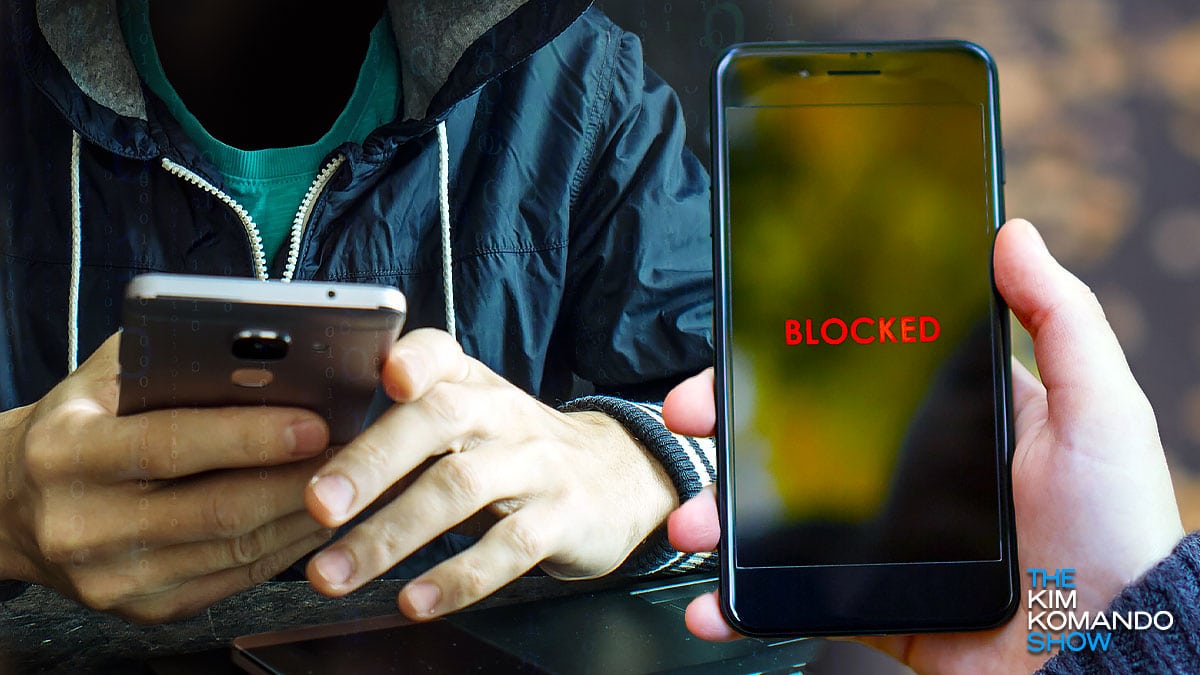How to know if hackers are in your phone

The iPhone has a reputation for being secure. Apple has a closed operating system (as opposed to Android’s open-source) and more closely monitors and vets apps in the App Store. And with just one phone model, the iPhone, Apple can more easily push out updates and pressure its users to download them.
This doesn’t mean that your iPhone is immune to attack. Hackers are always coming up with new ways to get into any device, and your iPhone is a prime target for malware, spyware, ransomware, viruses and more. Tap or click here for iPhone and Android security features to switch on.
Whether you use iOS or Android, it’s not easy to tell if your phone has been compromised. Hackers can target your devices in many ways, and you may not get an alert or even know that something malicious is happening in the background. Read on for tips on diagnosing a hacked phone.
Be careful where you place your trust
It’s not just hackers you need to worry about. Some apps share your information with third parties for advertising purposes and to build a profile on you. While they’re not out to hack your accounts, this is an invasion of privacy.
Then there’s stalkerware, designed to track you using GPS, call logs, messages, images, browser history and more. This can be hidden behind another app that seems harmless. Stalkerware can come from someone very close to you, such as a spouse or jealous ex.
Harmful downloads and malicious links can infect your phone without your knowledge. Something as innocuous as a PDF file can carry poisonous data. Be careful where you tap.
Bad apps, like bad apples, exist everywhere. They can imitate well-known apps or try their luck to trick you into downloading and running them. Once you do so, your phone is infected with malware.
You can minimize risk by only downloading apps from official app stores and checking official sources to make sure you’re downloading the real app and not an imposter.
RELATED: How to know if you’re being stalked with an Apple AirTag
Malicious intent
Don’t forget about threat actors. Hackers can target your SIM card, the tiny chip in your phone associated with your mobile account. This is known as SIM swapping, and the scam entails convincing your mobile carrier that the scammer is you.
Delete this productivity app NOW

Like millions of other Americans, you probably made a few resolutions entering the new year. If you want to start 2023 right, include better cybersecurity on your to-do list.
Start by deleting these five redundant apps from your smartphone. That’s just the beginning. A productivity app that made its way to an official app store was recently caught hiding malware. It’s designed to steal banking credentials to rip you off. If you have it on your device, remove it ASAP!
Don't be fooled! Fake Netflix apps are spreading malware

Everybody loves a good bargain, coupon or discount code. But it has once again become clear that you can’t trust everything you find online or receive in a text message.
There are plenty of fake apps and services that will do nothing but steal your details, and it’s getting worse. Criminals responsible are becoming craftier, spoofing real websites and services and loading them with malware. Tap or click here for details on spoofing.
Check your phone for these 50 sketchy apps - see the full list

Modern-day tablets and smartphones are more powerful than many desktop computers from the early ’90s. But to get the most out of them, you need to add applications that tap into their unlimited potential.
Finding apps to install is where you need to be careful though, as some are designed by cybercriminals to rip you off. We recently told you about nine malicious apps that were hiding malware. Tap or click here for the details.
Google bans hundreds of apps - here are 8 you should delete right now

More and more malicious apps have been making their way through the supposedly tenacious vetting process of official app stores, putting all of our devices at risk.
Lately, Apple’s App Store and Google Play haven’t been as reliable about keeping harmful apps out. Tap or click here to see if you have any of these 17 malicious apps on your phone.
Another malicious app that could rip you off found in the Google Play Store

When downloading apps to your smartphone or tablet, we would always recommend using the official app stores like Google Play, or the Apple App Store. But, even though these official stores have screenings and fail-safes to try and weed out the malicious apps, sometimes one slips through. That exactly what happened recently. Here is what to look out for.
